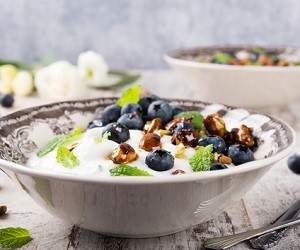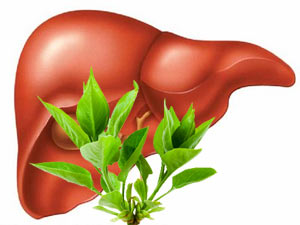 Diet for eye health.
Diet for eye health.
Food is one of the most important factors for the survival of any living being, one of the most important aspects of the external environment on the ability of human existence and the quality of his health.
Food, as it is known, not only provides energy but also is a supplier of substances are needed to build body cells and for metabolism.
Who can boast that the optometrist advised him to preserve and improve vision particular diet? Few, if not none. Selection of products for diet has always occupied an important place in the so-called naturopathic (natural) treatment methods, which include system Bates. Recommendations on nutrition are so smoothly fitted into the complex of health measures that it would be strange to abandon useful tips to streamline your diet for the benefit of the view.
The importance of good nutrition
The direction of power, which is shared by the followers Bates, differs slightly from other well-known systems of a healthy lifestyle. It is primarily the emphasis on food of plant origin with a rich content of vitamins and minerals. Improper diet indirectly affects the strength of the eye muscles, because their condition depends on nutrients brought by the blood, quality blood, the amount of oxygen in the blood, etc. Unbalanced diet cannot provide necessary nutrients to the retina. This leads, according to naturopaths, to the inability to generate a strong nerve impulses, which affects the image generated by the brain.
Therefore, the development of a rational diet with enough nutrients, vitamins and minerals should be the subject of attention of those people whose vision began to deteriorate.
The nutrition ensures the normal functioning of the nervous, immune and endocrine systems. From the nature of power, its usefulness and balance directly affects the body’s resistance to stress, various diseases. Power requirements are composed of requirements for dietary intake, diet and eating conditions.
Food should be varied. Are no bad and good food. It is important that the daily diet was a combination of different food groups. It a varied diet will help to provide the body with all essential nutrients and an adequate amount of energy. Limit your intake of fats, alcohol, pure sugar.
We recommend drinking at least 5 times a day fruit and vegetables, especially yellow, red, orange, whole grains, legumes. These foods are rich in dietary fiber, which enhance the feeling of satiety, normalize bowel function and detoxification. It is useful to maintain a sufficient level of calcium intake – 1 liter of milk or dairy products or drinking 100 grams of cottage cheese, cheese. You should not take unnecessarily high doses of vitamin complexes and other food supplements.
Substances that are useful for your eyes
Any vitamins and micro and macronutrients in appropriate amounts useful and necessary for a healthy body and to return to normal life weakened system. Their role in metabolism and activity is extremely high. The word “vitamin” comes from the Latin vita which means “life”. Or vitamins enter the body with food, either produced in the body.
Inspect often on your Desk are: yellow and orange fruits and vegetables (oranges, peaches, apricots, squash, corn), greens (spinach, lettuce, celery, peas), fish (optimally at least two times per week), nuts (almonds, sunflower seeds).
Vitamin A
Vitamin a – it is recognized by all doctors is extremely important for vision. He is a part of the photosensitive substance in the retina. Vitamin a deficiency in humans can lead to the so-called night blindness where vision at dusk and in the dark much weaker.
The main suppliers of vitamin A:
– cod liver and beef cattle;
– egg yolk;
– cream, butter;
– fish oil, whale oil;
– vitaminized margarine;
– cheddar cheese.
In addition, vitamin a can be synthesized by the body from provitamin A – carotene.
The most rich in carotene:
– carrots (65%);
– sweet pepper;
– sea buckthorn, rose hips, the fruits of mountain ash;
green onions;
– parsley, sorrel;
– spinach (raw, raw);
– green salad;
– apricots.
Note that the absorption of carotene from carrots is much harder (10 – 12 times!), if carrots are eaten with fat.
B vitamins
B vitamins – this is another guardians of the health of our eyes. In an age of increased emotional stress, continuous stressful situations, the nervous system of man requires a special focus. To support it in order to, among other factors, called vitamins of group B. Among them, the most important vitamins B1, B2, B6, B12.
The lack of vitamin B1 person becomes nervous, reduced mental and physical performance, and poor health. All this adversely affects the vision.
The main suppliers of vitamin B1 include meat, liver, kidneys, rye bread, barley, wheat germ, yeast, soybeans, potatoes, peppers, all kinds of vegetables.
Vitamin B2 is also important for vision, affecting all types of metabolism, in particular, in the cornea and the lens of the eye. It promotes the exchange of oxygen, involved in the burning of carbohydrates, turning them into energy needed by the muscles of the eye. Vitamin C deficiency in the body can cause impaired vision at night, you may receive a burning sensation in the eyes and eyelids.
Vitamin B2 rich apples, yeast, the germ and the shell of the grains of wheat, grains in General, milk, cheese, cottage cheese, eggs, nuts, meat, liver.
Vitamin B6 takes part in cellular metabolism, has a significant impact on the state of the nervous system. With a lack of this vitamin eyes, very tense and very tired quickly. You may also see the twitch of an eye.
The main suppliers of vitamin B6 – yeast, milk, liver, cabbage, wheat germ, grains, egg yolk, fish of all kinds.
Vitamin B12, in contrast to all the above vitamins, is found only in foods of animal origin. B12 is actively involved in hematopoiesis, particularly in the formation of red blood cells. Furthermore, this vitamin affects the Central nervous system and is involved in establishment of cell substance. The lack of vitamin B12 eyes look dim, watery.
The main source of vitamin B12 are egg yolk, milk, curd, cheese, meat, liver beef cattle and some species of fish. Remember that the absorption of vitamin B12 contributes to the beets. Therefore, it is also advisable to include in the diet.
Vitamin C (ascorbic acid)
Vitamin C is perhaps the most widely used among all the vitamins. It is recommended to take as a preventive measure against colds, as a tonic means, etc. Regulating the redox processes, carbohydrate metabolism, maintaining the permeability of the capillaries at a normal level, this vitamin is also important for the eyes, as with the above vitamins. Its deficiency in food can lead to destruction of eye tissues, hemorrhages in eye due increased as a result of deficiency of vitamin the fragility of their blood vessels and other negative consequences.
Much vitamin C is found in the dried rose hips, fruits of mountain ash, red pepper, spinach, sorrel, red carrots, tomatoes, potatoes (especially in autumn), nelegalas cabbage.
Vitamin E (tocopherol)
Vitamin E (tocopherol) is one of the most important antioxidants – compounds neutralizing free radicals. The use of this vitamin is that it slows down the aging process and positively influences the blood and muscles, inflammatory processes and immunity. It is believed that the risk of developing cataracts and macular degeneration of the retina may be associated with deficiency of vitamin E.
Find vitamin E in vegetable oils, sprouted wheat germ, soy beans, almonds, broccoli, spinach, celery, Brussels sprouts and green peas.
Vitamin R
Vitamin P strengthens the walls of capillaries – small blood vessels, activates oxidative processes in the tissues, protecting the eyes from developing cataracts, increases the security of the body with vitamin C. the Vitamins P and C not only work together, but also reinforce the expression of each other in the body.
Contained in rose hips, black currants, oranges, cranberries, cranberries, wine, chokeberry, apples, quinces, peaches, pomegranates, gooseberries.
Antioxidants
Zeaxanthin and lutein – two antioxidants that are specifically designed for eyes. By doing with food, they accumulate in the tissues of the eyes and being in sufficient amount, protect them from UV exposure, free radicals and prevent cataracts.
Linoleic and linolenic acids are essential fatty acids that is not synthesized in the body, and act only from the outside. In the body, they are converted into prostaglandins, which are involved in the regulation of intraocular pressure. Their deficit affects the vision. You can find them in vegetable oils, pumpkin seeds, soybeans, walnuts and vegetables with dark green leaves.
Micro and macro
In addition to vitamins products diet should contain adequate amounts of macro– and micronutrients. Of all minerals, especially important for eyes selenium, aid in vitamin E, and zinc, which promotes the body’s absorption of vitamin A, prevents the development of macular degeneration and reduction of twilight vision. And selenium and zinc rich nuts and seafood (especially oysters).
“If you want to have a strong, lively eyes, then you need to ensure that you are getting enough potassium,” – say the doctors. The main sources of potassium are apples, vinegar from Apple juice and honey. In large quantities contained in parsley, celery, potatoes, melon, green onions, oranges, raisins, dried apricots.








